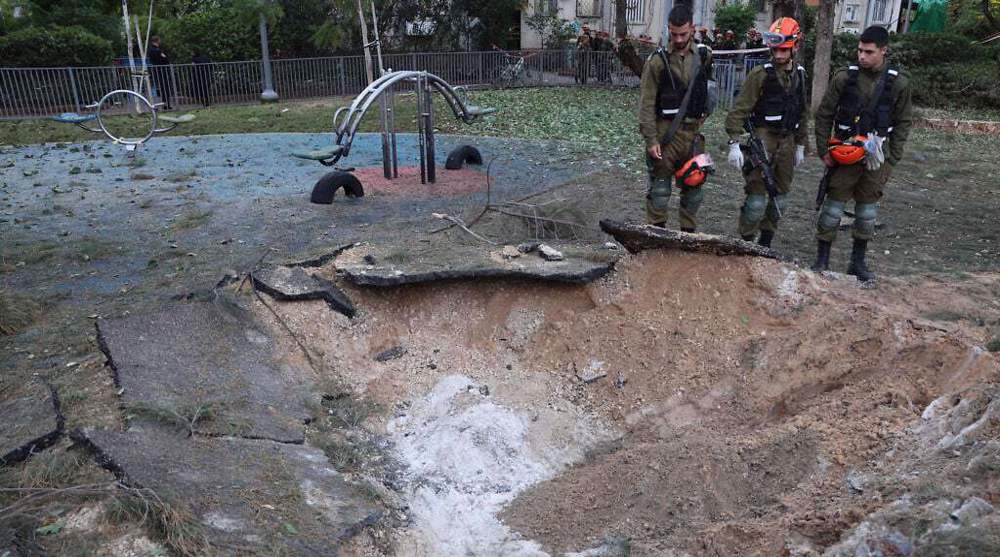Tens of thousands of Israelis march to Knesset as anti-regime protests continue
Tens of thousands of Israelis have headed toward the occupied city of al-Quds to voice their opposition to Prime Minister Benjamin Netanyahu's extremist policies, amid months-long anti-regime protests.
The demonstrators walked through the winding highway to al-Quds under the hot sun on Saturday, as they carried Israeli flags and chanted anti-regime slogans.
The protesters are planning to stage a rally outside parliament ahead of a Sunday debate and subsequent vote on Netanyahu’s so-called judicial reforms controversial bill, which has plunged Israel into one of its worst political crises.
Under the judicial overhaul plan, Netanyahu seeks to give the regime's extremist cabinet more influence in the process of selecting the Supreme Court's judges, while seeking to empower the politicians and the Knesset to override the court's rulings.
Meanwhile, dozens of former security chiefs, including military, police, and heads of the Israeli spy agency Mossad have called on Netanyahu to call off the vote and negotiate widely agreed reforms instead.
"The legislation is crushing those things shared by Israeli society, is tearing the people apart, disintegrating the military and inflicting fatal blows on Israel's security," they said in a letter on Saturday.
Netanyahu introduced the plan in January, triggering months of unprecedented anti-Netanyahu protests, with critics describing the plan as a threat to the independence of the courts by the prime minister, who is on trial on graft charges.
Those in favor of the scheme allege that it introduces some balance in the power that is wielded by the different branches of the regime. Its opponents, on the other side of the ledger, say upon ratification, the plan would empower the ruling class to act in a more authoritarian fashion.
Faced with raging protests as well as a wave of mass industrial actions in support of those protests, Netanyahu announced a pause in late March in his drive to get the plan approved by the Knesset.
The judicial overhaul plan originally sought to render the Supreme Court incapable of striking down politicians’ decisions.
Pro-Netanyahu lawmakers have indicated that the new bill would be a far softer version of previous proposals that sought to almost totally roll back the Supreme Court’s power to rule against the executive. The opposition, however, says the new bill would still open the door to corruption.
The regime’s attorney general, Gali Baharav-Miara, has accused Netanyahu of acting “illegally” in championing the reforms. She noted that the prime minister is trying to push on with the plan due to his long-running corruption trial in which he is accused of fraud and breach of trust.
Leader: Iran has no proxy forces in West Asia
US fighter aircraft shot down ‘in friendly fire’ amid aggression on Yemen
Yemeni FM: Israel’s sponsors accountable for ongoing aggression on Sana’a
Eight Palestinians killed as Israel attacks Gaza school, hospitals
VIDEO | Rome, Milan host new protests in solidarity with Palestinians
Dec. 21: ‘Axis of Resistance’ operations against Israeli occupation
Spain jurists demand ties with Israel ties be cut
VIDEO | Press TV's news headlines















 This makes it easy to access the Press TV website
This makes it easy to access the Press TV website